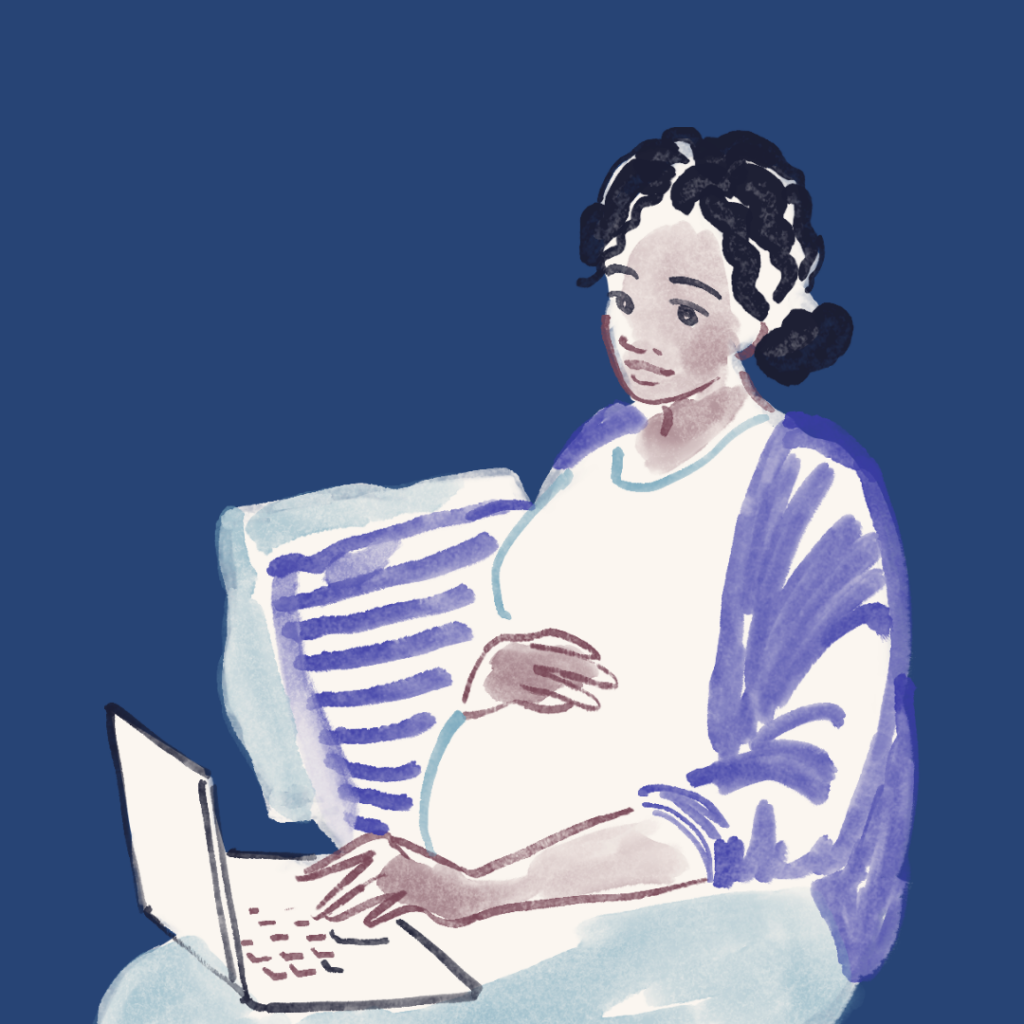
Working throughout pregnancy is often seen as a case-by-case issue. Some birthing people have no problems working throughout their pregnancy, even up until they give birth; while others do not feel like they have the mental or physical capacity to keep up with a job. Everyone is different, and it’s important to note that birthing people have the capacity to make decisions that they feel are best for them. However, when someone’s job, along with their economic status, impacts their safety, health, and choices during pregnancy, working during your pregnancy can be a Reproductive Justice issue.
Every birthing person has the right to work during their pregnancy and while parenting. The Pregnancy Discrimination Act of 1978 (PDA) protects birthing people working in companies with 15 or more employees from discrimination and harassment. If someone is pregnant, was pregnant, planning to become pregnant, has a medical condition related to pregnancy, or had an abortion or is seeking one, an employer doesn’t have the right to discriminate against them. This means no firing, rejection, or being forced to take leave. Birthing people also have the right to request accommodations while they are pregnant so that they are able to do their jobs safely. As far as after birth, the Fair Labor Standards Act (FLSA) makes it so most employers need to provide break time and a private space (that isn’t a bathroom) for birthing people to pump breastmilk. Some employers also provide paid leave for new parents, but the amount of time is dependent on state and organizational policies.
Even with these laws and protections in place, it still has not fully stopped workplace discrimination against pregnant people and parents. In a 2022 survey, 1 in 5 women said that they experienced discrimination in the workplace because of pregnancy. In that same survey, 1 in 4 women said they considered quitting because their jobs didn’t accommodate them. Things like this can impact autonomy; if someone is afraid of being treated unfairly because of pregnancy and childbirth, that can have a significant impact on their reproductive choices, especially if they can’t afford to take a break from working. Lack of accommodations can cause health problems or make them worse, and biases toward abortion can make someone afraid to speak up for themselves or request time off. This can negatively affect someone’s mental and physical health and even prevent them from receiving an abortion and reproductive care.
Paternity leave has also been an issue commonly talked about in the United States. The FLSA does not require maternity leave to be paid and is only up to 12 weeks. Some benefits to paid leave include the improvement of mental and physical health for birthing people, decreases in the infant mortality rate, low birth weight, and preterm birth rates, and increases in infant immunizations. Without paid parental leave, new parents and their babies are more likely to face challenges, with Black, Latinx, and low-wage working parents disproportionately being impacted.
For many, their workplace has a heavy influence on their choices, which limits bodily autonomy, can affect their mental and physical health, and even impact the way they parent and are able to care for their children, all of which prevent Reproductive Justice from being achieved. It’s important that we advocate for equity in the workplace so everyone can feel safe and supported.
